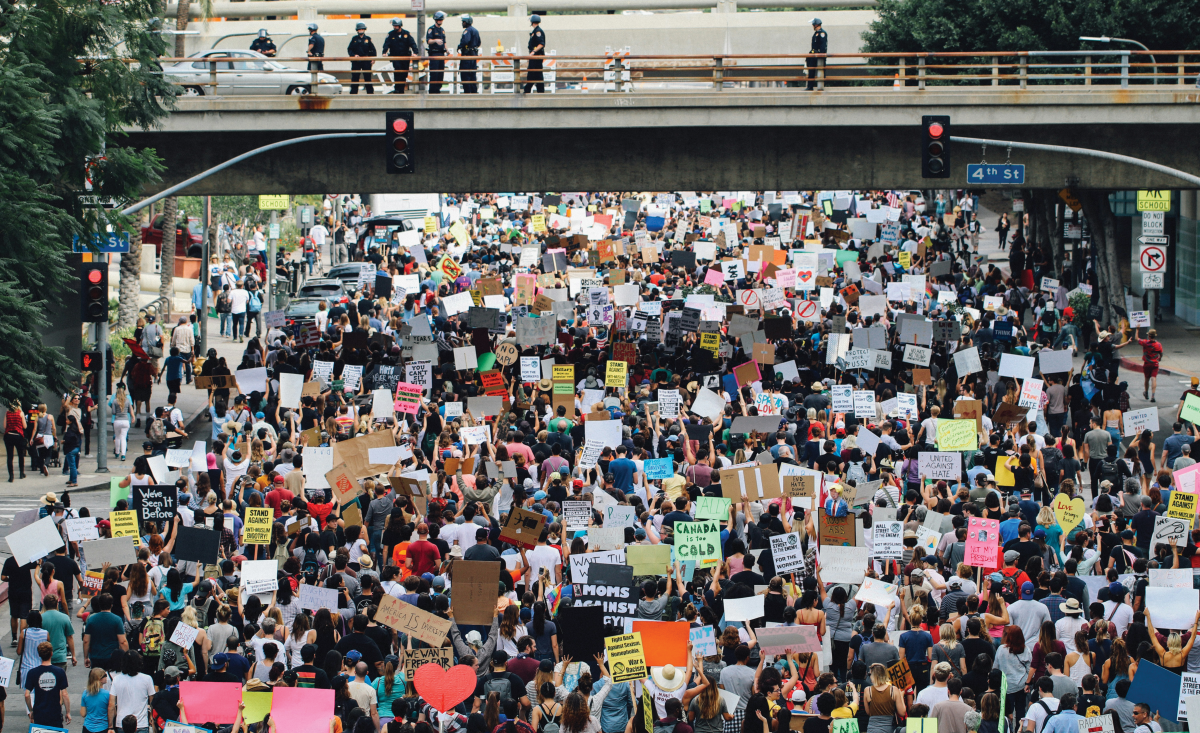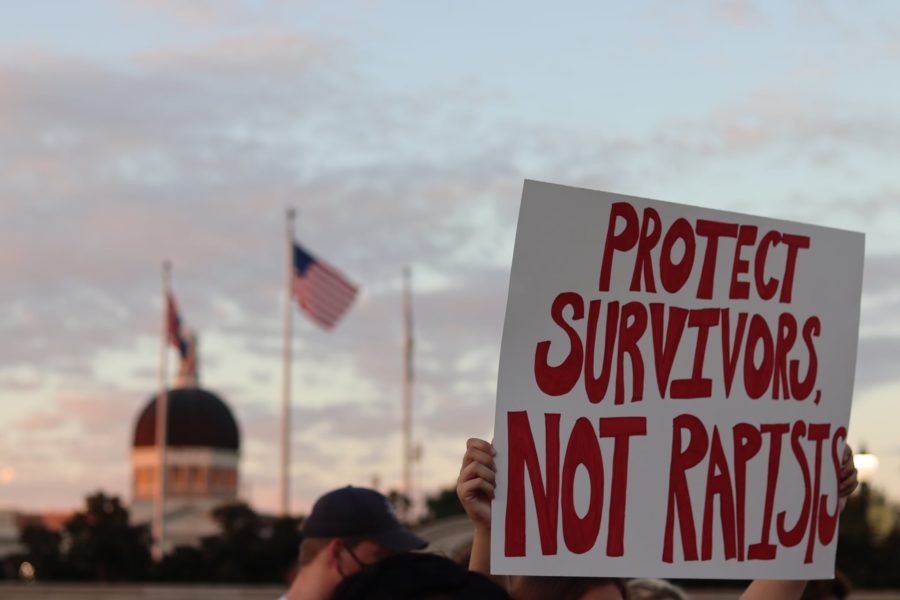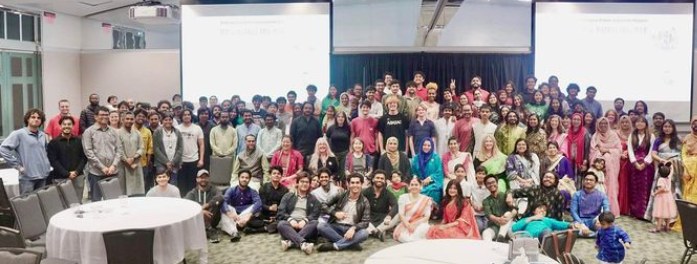Photos by: Sean Smith
Content warning: this article contains discussions of sexual assault and abuse.
Student protestors gathered in front of campus last Friday to advocate for a zero tolerance sexual assault policy, something which the adminstration has largely remained silent on.
The protest, organized by senior English major Rebecca Fish, was held on Oct. 15 near Lake Byron, one of the busiest entrances on campus. Participants, standing in solidarity with sexual assault survivors, held up signs criticizing rape culture both on and off campus, chanting slogans like “No means No” and “We see you”.
The main goal for this protest, much like a similar event on Oct. 1, was to call for the implementation of a zero tolerance sexual assault policy at Southern Miss. This policy, if implemented, would entirely ban anyone convicted of sexual assault or abuse from entering campus, whether as a student or a guest.
Kayla Barnes, a recent psychology graduate from Southern Miss, attended both the Oct. 1 and Oct. 15 protest. She was one of the main speakers at the Oct. 15 event, leading protestors in chants both before and during the march.
“I’m here because survivors deserve to be protected and loved, and your reputation shouldn’t be held over that,” Barnes said.
Barnes’s concerns are not unique. Many of the protestors at the event believe Southern Miss’s administration could do a lot more to protect students, especially sexual assault survivors, but simply does not do so. It doesn’t help that there are currently rumors that the administration is considering removing the UPD’s Blue Light system, which would pose a major safety concern for students walking home or to their cars at night.
Though there was an official university response released through the Office of Student Affairs’s official Instagram, it almost immediately drew criticism. Not only did the response come out two weeks after the Oct. 1 protest, but it did not explicitly refer to the protest at all, including the protestors’ main call for a zero tolerance policy.
“Administrators need to be active in this change,” Selma Newbill, the founder of Southern Miss’s Sexual Assault Prevention Ambassadors (SAPA), commented on the post. “We are fighting to be heard and for something to be done, not just to be acknowledged in our fight.”
Dee Dee Anderson, the Vice President of Student Affairs at Southern Miss, helped create the response put out by the university. She said the university has heard student concerns, and is working on ways to figure out how to officially incorporate them on campus.
“It took some time to do some research and find out some answers, and we’re still not done with that,” Anderson said. “We are still researching some things that the students have asked for […and] sometimes it takes time to get all of the information that you need to get together.”
When asked about the possible removal of the Blue Light system, Anderson said it was “too early” to say anything definitive. However, she was quick to emphasize that the removal would not be permanent, and that the university wants to update the technology behind the Blue Light system rather than entirely get rid of it.
Bella Brocato, the current President of SAPA, was also present at the Oct. 15 protest. They gave a speech a little before the main march happened, explicitly criticizing Southern Miss’s administration throughout and emphasizing the severity of the issue at hand.
“Let me tell you about the college experience,” Brocato said. “The college experience is learning that almost every person you know is a survivor of sexual violence or abuse. The college experience is knowing that you’ll face harsher punishments for plagiarizing than you would for sexual assault. The college experience is watching individuals protect perpetrators because they’re a ‘good person’, […and accepting] the fact that performative activism is the best you’re going to get [from higher ups].”
Cristin Reynolds, the Interim Title IX Coordinator at Southern Miss, primarily helps Southern Miss students and faculty get into contact with sexual assault resources to file complaints or handle cases. She said her office is open to implementing a zero tolerance policy, but is also still held accountable to federal regulations, which can pose a lot of problems.
“Our office is bound by federal regulations, what we can and can’t do, […] which comes into play a lot when we talk about supportive measures with our campus community,” said Reynolds. “It’s very important for us that we help educate our campus community on what support measures can look like, and we help get people connected to those because our office has to remain neutral. We’re not allowed to advocate for different groups on campus. We’re here to administer the process [if] someone wants to come forward and file a formal complaint.”
Though Southern Miss students have only gathered to protest sexual assault within the last month, it has long been a problem on college campuses. RAINN, the Rape, Abuse & Incest National Network, found that 26.4% of female undergraduate students and 6.8% of male undergraduate students reported being sexually assaulted during their time in school — and those are only the ones who reported. It is one of the most prevalent crimes on college campuses and is one of the most traumatic experiences someone can go through.
“This is not an easy fight. It is one that is so personal and so heavy, and, oftentimes, hard to believe that it is even a fight at all,” Brocato said. “So, here is To The Top: we see you, your silence is deafening [and] survivors deserve better. And if they won’t get it from you, then they’re going to get it from us.”
If you want to report an incident of sexual misconduct at Southern Miss, or if you’re interested in receiving materials and training regarding sexual assault/abuse, contact the Title IX Office at 601-266-6804.
Fish and other protest organizers have also created a petition calling for Southern Miss to implement a zero tolerance policy. You can find the petition at www.change.org/p/the-university-of-southern-mississippi-demands-for-the-university-of-southern-mississippi-to-implement-a-zero-tolerance-policy.









































